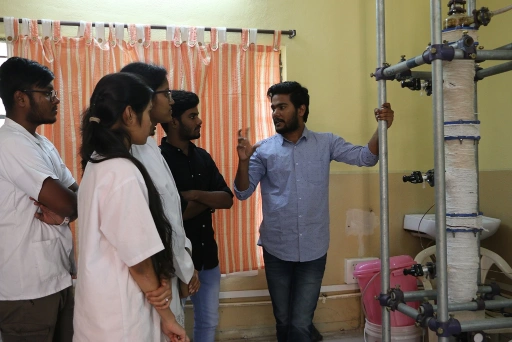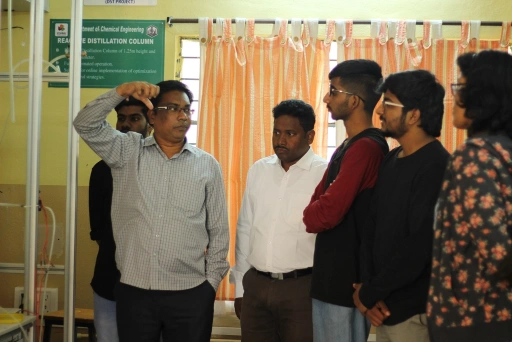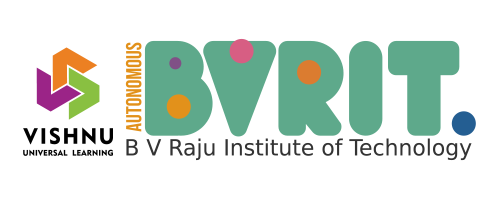Fluid Mechanics Laboratory
Fluid Mechanics laboratory provides a “hands-on” environment that is crucial for developing students’ understanding of theoretical concepts. The fluid mechanics laboratory is of fluids and their flows are studied and observed. Pressure variations of compressible fluids when they are allowed to flow through various pipes and flow equipment and theoretical demonstration of different laws of fluid mechanics are studied.
The experimental facilities provided in the lab include: Venturimeter, Orifice meter, Bernoulli’s theorem, Weirs & Notches, frictional losses in the pipe, Reynolds Apparatus, Centrifugal pump, coefficient of discharge in V-notch, Pressure drop in fluidized bed reactor and packed bed reactor, Calibration of Rotameter, friction losses in valves and fittings, viscosity determination using Redwood viscometer, etc What type of pump do you use in your house to fill water from the borewell? What is a turbine? How does a valve operate? To know these answers, please step into the fluid mechanics’ lab. Housing the sophisticated equipment, this laboratory completely satisfies the queries of the semaphore related to fluid mechanics.
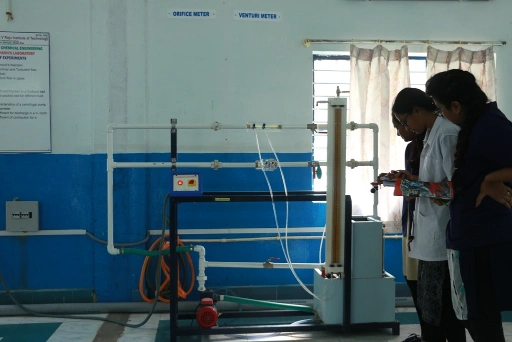
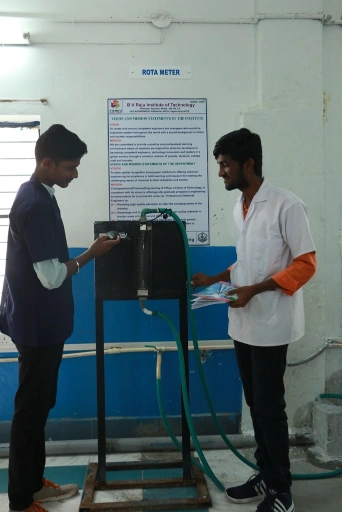
Mechanical Unit Operations Laboratory
The Mechanical Operations lab is one of the important laboratories in the Chemical Engineering discipline. The Lab mainly includes the study of solid mechanics, Properties of particulate solid materials, powder processing, transportation and storage of solids.
The lab is fully equipped with different kinds of equipment that are used in industries for Size reduction, Crushing, Grinding, Filtration and etc. The equipment available in the lab is a Jaw crusher, Roll mill, Ball mill, Hammer mill, Verification of stokes law, Batch sedimentation, Beaker Decantation, Plate and frame filter press, and equipment to study properties of powders and Blain apparatus.
The students are performed in this lab and they may get the complete knowledge of different kinds of mechanical operations, different properties of powders, powder processing, transportation and storage of solids. The students by their gained knowledge in the lab can be able to design different pieces of equipment which are useful to Pharmaceutical, Chemical and many other industries and also they can solve the problems faced by the industries.
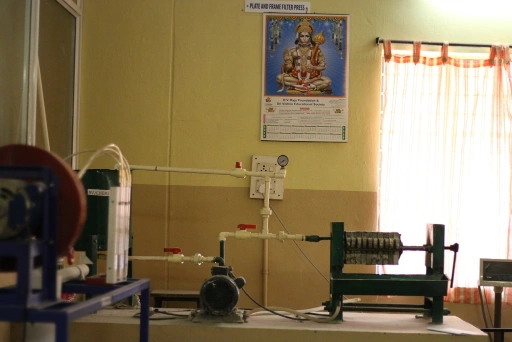
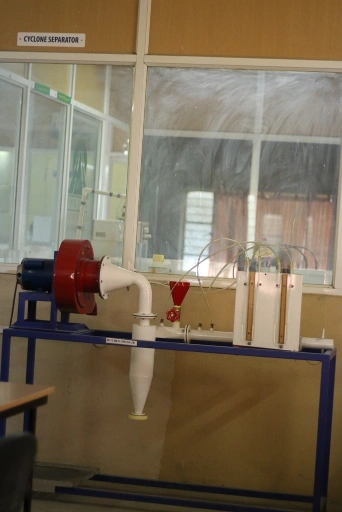
Heat Transfer Laboratory
Conduction, convection and radiation are the three modes of transfer of heat from one body to another. But have you witnessed how these take place? Welcome to the heat transfer lab. Equipped with the sophisticated world class heat transfer equipments like Shell & tube heat exchanger, Dropwise & filmwise condensers, extended surface heat exchangers, Evaporators. This laboratory provides the novel requirement that serves the upcoming engineer up to extreme cognizance. So the next time when you see a motorcycle engine, dont be enigmatic about its shape & design.
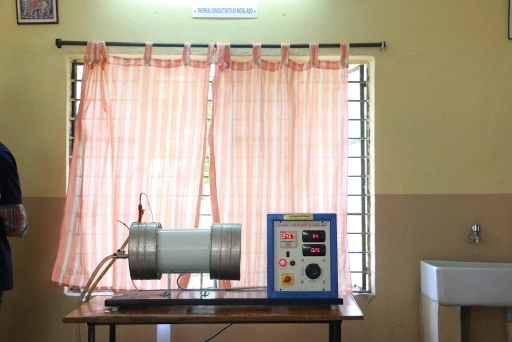
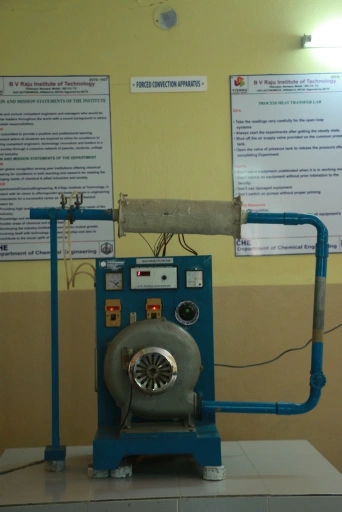
Mass Transfer Operations Laboratory
The purpose of this lab is to introd uce the undergraduate students with the most important separation equipments in the process industry, and provide a hands-on training of the proper operation of these units. This helps in not only understanding the theoretical fundamentals of the subject but also helps to visualize its real-world applications in the process industry.These experiments help the students to understand different separation processes in detailed. The experiments covered in this lab also pave way for inculcating certain innovative skills in the students making them to use these experimental setups as starting point to take up higher level experimental studies in Mass Transfer.
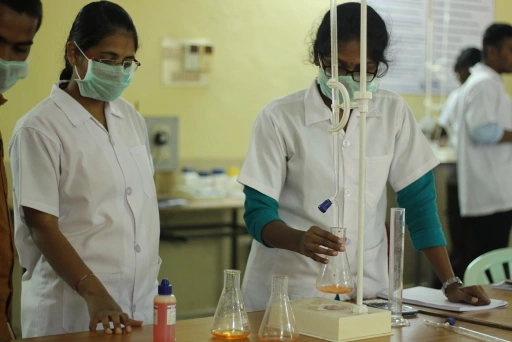
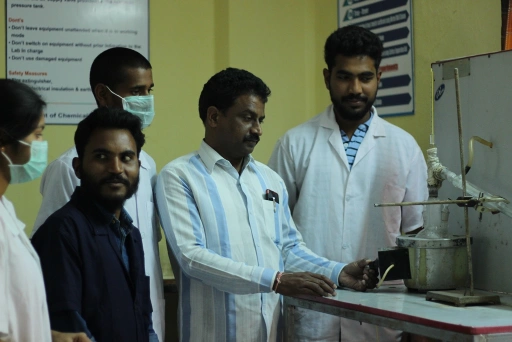
Chemical Reaction Engineering Laboratory
The chemical reaction engineering lab is equipped with the state-of-the-art equipments, automated like the Adiabatic and isothermal plug flow reactors (PFRs), Isothermal CSTR, Packed Bed reactors and the facilities of Trickle bed reactor in order to make the students visualize the immediate real time industrial conditions and learn about the reaction techniques. The purpose of this lab is to introduce the undergraduate students with the most important reactor types in the process industry, and provide a hands-on training of the proper operation of these units.
This helps in not only understanding the theoretical fundamentals of the subject but also helps to visualize its real-world applications in the process industry. These experiments help the students to understand reaction kinetics and reactor residence time distribution in detail. The experiments covered in this lab also pave way for inculcating certain innovative skills in the students making them to use these experimental setups as starting point to take up higher level experimental studies in Chemical reaction engineering.
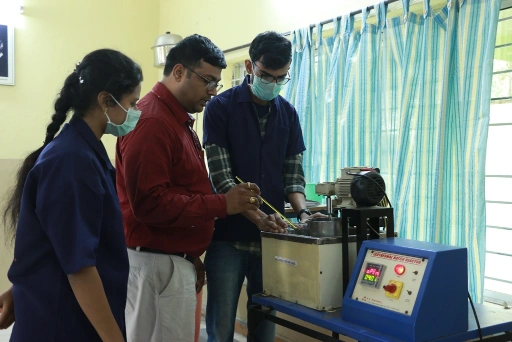
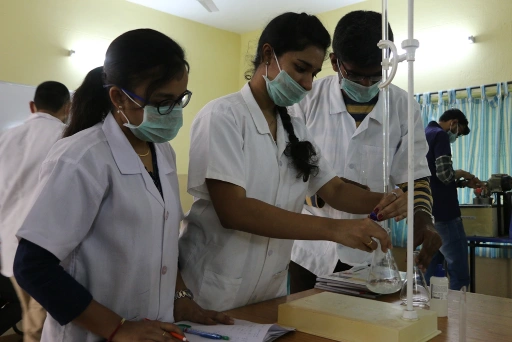
Process Dynamics & Control Laboratory
A specific reaction process cannot be successful to yield the required product or the anticipated results, without proper estimation of the dynamics associated with them and the requisite control techniques adopted. Here we have the process dynamics and control lab to let the upcoming engineer understand, practice and adopt the proper methodologies involved in an industrial set up for carrying out the operations and processes like the Interacting systems, Non-interacting systems, Simulations of the temperature controllers, Flow controllers, Level controllers, Pressure controllers with the use of in-built systems of P, PI & PID control strategies.
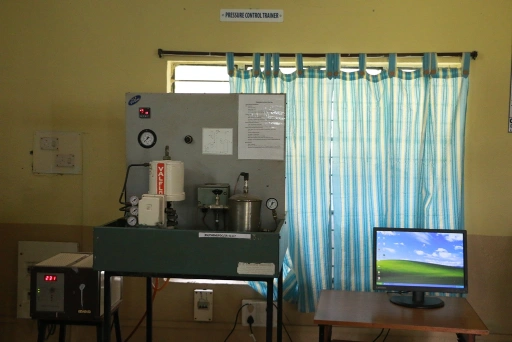
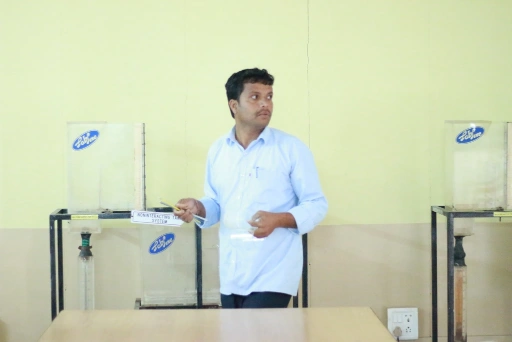
Process Simulation Laboratory
Simulation is the tool for predicting the effect of changes in the process and to predicate the performance of new system. Simulation laboratory is designed for final year B. Tech students. The purpose of introducing this lab for under graduate students is to enhance their coding skills. The experiments covered in this lab help the students to recall all fundamental concepts that they have learnt. This will make the student thirst about coding various chemical engineering processes. This will influence the students to accept challenges about advanced simulation and optimization in process industries.
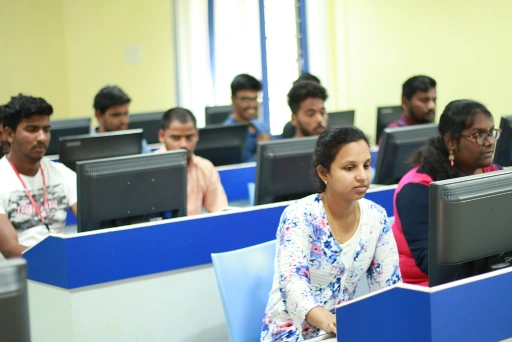
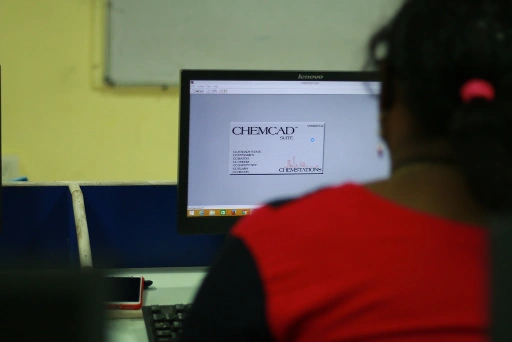
Particle Technology Lab
The Particle Technology Lab of Chemical Engineering Department, B.V.Raju Institute of Technology is an Inter disciplinary lab focusing on projects concerning to powders and particles related to cement, pharma, metallurgical and chemical industries. Various research and consultancy activities carried out at the particle technology lab are as follows.
Physical facilities:
- Compression testing machine
- VICAT apparatus
- Vibrating machine
- Mortar Mixer
- Environmental Test Chambers
- Muffle furnace
- Air permeability apparatus
- Sieves SETHI
Software’s facilities:
- ANSYS Fluent
- COMSOL
- CHEMCAD
- MATLAB
Research and Analysis works:
- Powder Composition
- Powder Characterization*
- Flowability studies
- Physical characteristics
- Cold model studies
- Computational fluid dynamic (CFD) analysis of process
*Particle morphology (SEM/TEM), Crystallographic (XRD), Surface area, Pore volume and Particle Size Distribution (BET) etc. shall be carried out with the help of nearby laboratories.
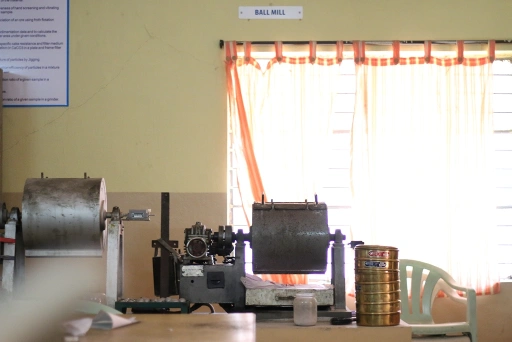
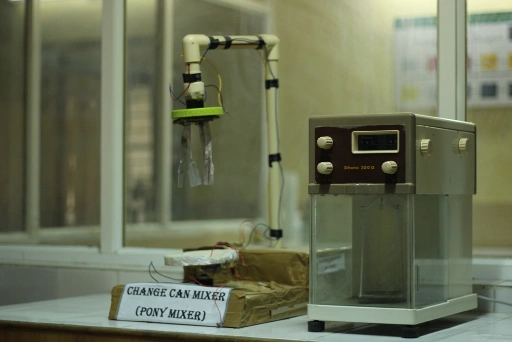
Process Intensification Lab (DST-FIST Project)
Reactive Distillation Unit
A fully automated packed bed reactive distillation setup is designed and fabricated for the generation of real time data. This real time data will be used in experimental validation of mathematical models of processes and in designing the appropriate control strategy of the process. The equipment has a provision to incorporate a user written control algorithm so that different advanced hybrid soft sensors can be implemented for the control of the process practically.
Biofilm Reactor Unit
The Biofilm reactor setup is designed and fabricated with two 1.2 m columns in series which is intended to be used for the treatment of different industrial waste water using different packing materials. The real time data thus generated will be useful in developing the appropriate design, control and optimization strategies of the process.
